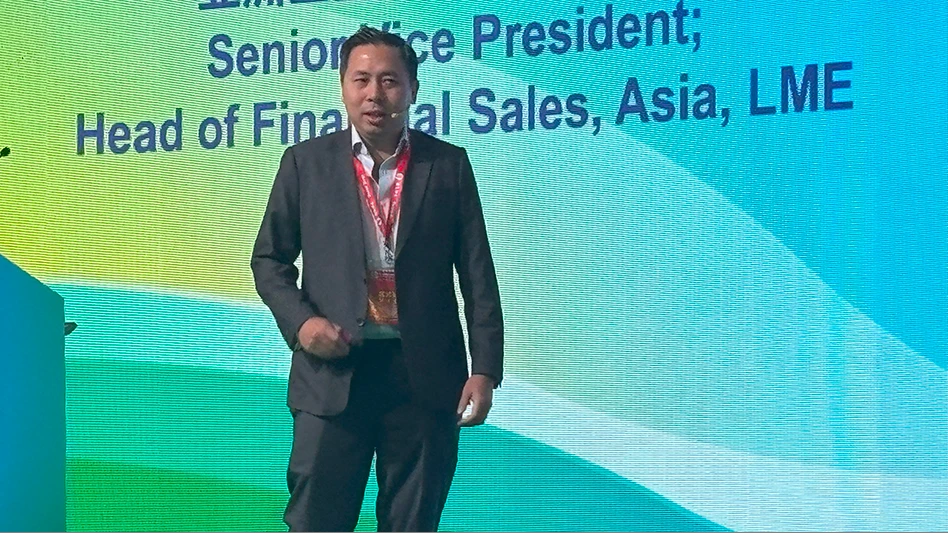
Photo by Recycling Today
The rate of adoption of electric vehicles (EVs) in the United States and beyond has emerged as a much discussed topic, including among processors and traders of metals for recycling.
Attendees of the 2024 ASEAN Recycling Metals International Conference, organized by the China Nonferrous Metals Industry Association Recycling Metal Branch (CMRA) in late June in Bangkok, found the topic on the agenda there.
While internal combustion engine (ICE) vehicles consume plenty of aluminum and copper, a growing EV and hybrid vehicle sector would retain demand for those metals and add battery metals demand to the mix.
Joe Vu, who works from Singapore for the London Metal Exchange (LME), described the exchange as an established source of reference pricing for aluminum, copper and nickel that also can help users of the metals manage their price risk.
The LME also offers cobalt and lithium hydroxide contracts. In the case of all metals used in the EV sector, Vu recommended risk management tools such as hedging as a metaphorical umbrella, “because you don’t know if it’s going to rain or not” when it comes to volatile pricing.
In an overview of global nonferrous markets, Wang Min of London-based CRU characterized the growing market share of battery electric vehicles (BEVs) and EVs in Europe as a “paradigm shift that will see the use of less cast aluminum and more aluminum sheet.
She said sheet aluminum in Europe currently has 12 percent recycled content on average but predicts that percentage is poised to rise.
Even the oil-rich Gulf Cooperation Council (GCC) region is likely to see EVs gain market share, affecting how metal is produced and what grades of scrap metal are generated there, said Sanjeev Phadke, secretary general of the Bureau of Middle East Recycling (BMR).
Phadke said in GCC nations such as the United Arab Emirates there is a growing emphasis on the adoption of the circular economy model, which could be good news for scrap importing regions such as China and the Association of Southeast Nations (ASEAN) region.
“There is still plenty of unrecycled metal” to be collected in the Middle East, said Phadke, adding that some will need to be exported.
In both China and the ASEAN region, the increased market share of EVs is likely to create changes in the metals markets.
Representatives from the government of Thailand who gave presentations at the CMRA conference frequently mentioned EV battery development and recycling as a point of emphasis in the nation’s BCG (bioeconomy, circular economy and green economy) investment incentive program.
Dr. Teerawut Tunnukij of the Thailand Department of Mines said research and investments in hydrometallurgical EV battery materials recycling technology were being backed by his department, along with solar panel recycling techniques.
Dr. Somthai Wongcharoen of the Thailand-based Wongpanit Group and the Thai Recyclers Trade Association (TRTA) said TRTA member companies have been investing in end-of-life vehicle (ELV) recycling infrastructure, including paying greater attention to EV batteries and aluminum battery housings.
The CMRA 2024 ASEAN Recycling Metals International Conference took place at the Shangri-La Bangkok from June 17-19.
Latest from Recycling Today
- BMW Group, Encory launch 'direct recycling’ of batteries
- Loom Carbon, RTI International partner to scale textile recycling technology
- Goodwill Industries of West Michigan, American Glass Mosaics partner to divert glass from landfill
- CARI forms federal advocacy partnership
- Monthly packaging papers shipments down in November
- STEEL Act aims to enhance trade enforcement to prevent dumping of steel in the US
- San Francisco schools introduce compostable lunch trays
- Aduro graduates from Shell GameChanger program





